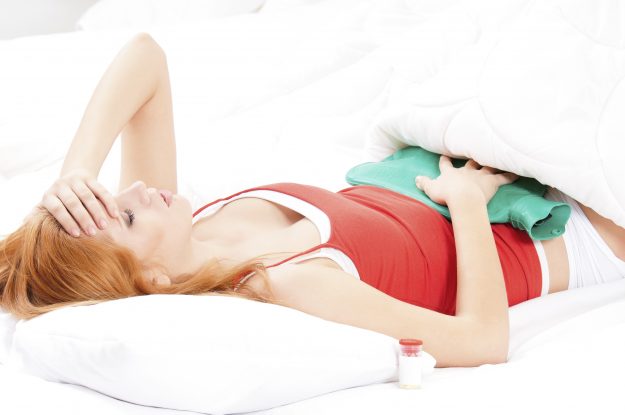Millions of people in the UK are suffering from Irritable Bowel Syndrome (IBS). A change in our life-styles and our eating habits are mainly to blame.

Source: IStock
A 35-year-old legal professional was diagnosed with Crohn’s disease about seven years ago.
“I was 31 years old then, and when consulted my GP, I was put on medication after which the condition became stable. However, by the year 2014, the condition worsened, and I had to spend another 24 weeks on medication along with another couple of weeks, on courses for reducing steroids. This double dose of medicines also resulted in side effects like skin rashes and other physical conditions,” said the client.
She said, that after consulting on the issue and understanding that the cause of her health was due to stress it was told that her health could improve, through better lifestyle. The difference was visible in the next two months after the suggested changes in the diet were made which helped to remove irritants and also support healing.
The change also included lifestyle improvement to relieve stress factors that had contributed in a bad digestion and general ill-being. “At present, I am off, the double dose of medication and steroids, and back to the original minor treatment.
However, she is not the only person suffering from Irritable Bowel Syndrome (IBS).
According to NICE (The National Institute for Care and Excellence), about 20% of the population (over 12.82 million people) is seen to be affected by this syndrome. It is most commonly seen in people between the age group of 20-30 years and is more common in women than men.
Irritable Bowel Syndrome is a chronic condition and in many cases, a disorder.It is often recognised by symptoms such as long lasting abdominal pain or discomfort. Changes in defecation pattern like constipation or diarrhoea are prominent, in a majority of the cases.
What is IBS?
Suffering from frequent headaches, back pain, poor sleep, and constipation or feeling stressed and depressed is also very obvious these days. These symptoms, have become common among people and most of the people blame it, on the long office hours which is taking a toll on their health.
However, many people are self-sabotaging in their choices in daily lives and may be, that is why suffering from Irritable Bowel Syndrome (IBS).
Correana White, a holistic health coach who deals with cases related to IBS, says that symptoms like a bloated stomach, sometimes low energy levels and sex drive may also be symptoms of IBS.
“Anybody from young to old can be affected by it. The youngest person I have worked has been 18 years old. The age range of sufferers is widening, and more people young and old are seen affected by it,” she says.
Correana says that the actual number of people suffering from IBS is difficult to estimate, as we only have figures for those who report it to their GP (general practitioner).
“Many people are not aware of the subtle signs the body gives us, and some feel; it is a regular thing to happen to them, it may be usual for you. However, it is not normal for the body to behave that way. Unfortunately, there is a misconception that the condition can be cured with some medicines. This just suppresses the symptoms and does not address the cause of the disorder,” she says.
Explaining about how the lifestyle is affecting, she says that human bodies are meant to handle short and sharp amounts of stress. However, nowadays, the forms of stress have changed to chronic and extend to a longer period. The stress could be from job deadlines, fear of success or failure, worry, anxiety, depression, guilt, sadness, family relationships and illnesses.
A 41-year-old, entrepreneur who suffered from IBS due to poor diet habits said, “Initially I was a bit sceptical of the result that could be achieved. However, in the last few months of changing lifestyle, I have come off, long term medication in addition to retaining better sleep and loss of weight.”

The existing environment can also be attributed to the IBS due to the additional stress put on the human body. “The rising pollution levels, being constantly surrounded by electromagnetic waves, extensive usage of toxins in body care products, also stresses the body physically and takes a toll on it, in the long run,” Correana said.
She says that the choices made in daily life, like the food which includes additives, junk and processed food, high sugar intake and irregular eating timings also contribute to the IBS. “Food is meant to be consumed in its most natural form. Fruits, vegetables, salads, fish, meat and healthy fats are the building blocks of nutritional health, and if that is compromised, the immune system gets affected. Good quality food is important in rebuilding and regenerating the cells.”
Correana says that many people often have certain kind of intolerance over certain types of food but they never realise that, and consuming them does harm to their bodies. The solution is to start making healthier choices and to find out which foods cause discomfort or inflammation.
Elaborating on food habits, she says that we are killing more beneficial bacteria and gut flora through the bad food choices we make. These bacterias and floras are responsible for keeping our immunity levels high. Without these, we expose ourselves to numerous diseases. Breaking down food and helping it to digest and absorb into our bodies is an essential part of the digestive system.
One such case seen by Correana is a 59-year-old retired woman who suffered due to reduced beneficial bacteria and gut pathogens. “My stomach problem persisted for over 40 years and required to see many doctors and undergo various treatments including medication for almost 30 years.”
However, when consulted with the health practitioner, she was then suggested a balanced diet that suited her conditions. Significant amounts of probiotics and a good regime helped her to get her gut healthy.
Correana says, “The processed or junk food that is consumed increase stress in the body and turn kills the beneficial bacteria. The stress and lack of nutrients can then reduce stomach acid and enzymes that help the body for digestion. Moreover, with people on medication, antibiotics specifically, kill the gut flora to a larger extent and make it difficult for the body to recover them at the rate, our bodies should.”
Working with people with this condition for the last five years, she says, the best way to prevent and recover from IBS is to learn to respect your body.
“The most important thing is to listen to your body. The signals it sends, through various symptoms, cannot be neglected and should be addressed to, immediately. Then take responsibility for what the situation is, at the moment, seek help from health practitioner” she says.
Correana says that getting functionally tested for severe gastrointestinal symptoms and getting checked for food intolerances is another way of getting to the cause. Discipline and nutritional changes can then be put in place to aid recovery and preventing more self-sabotage to the body.
